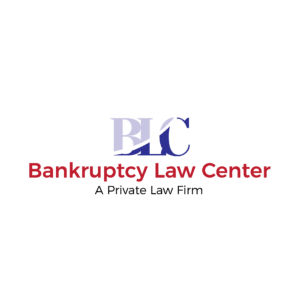Chapter 7 Bankruptcy Orlando, FL
For many, bankruptcy remains a complicated subject for a variety of reasons.
The bankruptcy offices of Bankruptcy Law Center are here to advise you of your rights. They will discuss how the new Federal bankruptcy laws regarding Chapter 7 that the Congress is trying to pass and the Florida bankruptcy exemptions may affect you. Contact us now and take a step toward financial freedom. This is a business decision that should not be looked down upon. We get it, making that first call is the hardest part. Many of our clients have been in your shoes. They had to swallow their fair bit of pride and do what was right for their families. So stop keying in ‘how to file for bankruptcy in Florida without a lawyer’ and start contacting us. Let us assist you in doing the same for yours.We do not have big lawyer egos. We bring back the friendly human side that lacks in the today; we get back understanding, respect, and kindness.
What is Bankruptcy?
Bankruptcy is referred to as a legal proceeding where an individual whom you cannot pay his/her bills can get a fresh start. The federal law provides the right to file for bankruptcy, and every bankruptcy case is handled in federal court. Filing bankruptcy immediately stops every creditor from seeking to collect assets from you to pay the debts.
In the US, our founding fathers recognized the importance of bankruptcy. Article
1, Section 8, Clause 4 of the US Constitution authorizes Congress to enact uniform laws on the subject of bankruptcies throughout the US. Formulated in 1978, the Bankruptcy Code of Laws and Procedures we currently have is instituted by our federal government and offers relief for overburdened debtors.
Under the law of the US, a debtor may only acquire a discharge of debts in a bankruptcy Chapter 7 in Florida once every 8 (or eight) years.

What Types of Bankruptcy Cases Should I
Take Into Consideration
Under the law, there are four types of bankruptcy cases:
- Chapter 7 in Orlando is referred to as liquidation or straight bankruptcy. It needs a person to give up property, which is not exempt under the law, so the selling of property to pay creditors remains an option. The exemption laws of Florida are quite generous. Generally, those people who file Chapter 7 can keep each of their properties except in particular situations that can be explained more in-depth during a free consultation.
- Chapter 11 is referred to as reorganization and is used by businesses, along with some people whose debts are quite significant.
- Chapter 12 is reserved for fishers and family farmers.
- Chapter 13 in Orlando is a kind of reorganization that the individuals use to pay a portion of each of their debts over the years using their current income.
- Majority of the people filing personal bankruptcy in Florida will want to file under either Chapter 13 or Chapter 7 in Orlando. Either type of case proceeds individually or by a married couple filing jointly. Note that you do not have to have file bankruptcy with your husband/wife.

What Else Should I do Before Filing Bankruptcy?
You must receive credit and budget counseling from an approved credit-counseling agency within 180 days before your bankruptcy case is filed. The agency will evaluate possible options available to you in credit counseling, assisting you in reviewing your budget. If you think of filing for Bankruptcy in Florida without an attorney, you must have a certificate from the agency demonstrating that you acquired the counseling before your bankruptcy case was filed. Bankruptcy Law Center will coordinate this class for you. You do it either over the telephone or the internet, but it does not take more than 60-90 minutes.
What Property Can I Keep?
In the case of Chapter 7, you can keep each of your properties, which the laws say are exempted from the creditors’ claims. Florida has liberal bankruptcy exemptions, comprising an unlimited homestead exemption.
In finding out if, the property is exempt; you must keep a few things into consideration. The value of the property is not the amount you paid for it, but what it is worth when your bankruptcy case is filed. Especially for cars and furniture, this may be a good deal less than what you paid or what its replacement might cost you. Until and unless you are a high profile public figure, the chances are that no one will be going to your house to find the value of your belongings.
In addition, you only need to view your equity in the property. That indicates that you count your exemptions against the entire value, subtracting any money that you owe on liens or mortgages. For instance, if you own a house of $50,000 with a mortgage of $40,000, you just have $10,000 equity. With an exemption of $10,000, you can fully safeguard the home of $50,000.
While your exemptions enable you to keep property even in a Chapter 7 case, your exemptions do not make any difference to the right of a car loan creditor or a mortgage holder to take the property for covering the debt if you are behind. In the case of Chapter 13, you can keep each of your properties if your plan adheres to paying the secured creditors in full. More often than not, you will have to pay the liens or mortgages as you would if you did not file bankruptcy.
What Will Happen to my Car/Home if
I File Bankruptcy?
In the majority of the cases, you will not lose your car or home during your bankruptcy situation as long as your equity in the property is entirely exempt. Even if your property is not exempt to the fullest, you will be able to keep it, if you pay the trustee its non-exempt value in a ‘buyback’. Majority of the trustees will enable you up to 10 months to deliver your non-exempt value back.
However, certain creditors may have a security interest in your automobile, home, or other personal property. This means that you put your other stuff up as collateral for the debt or offer that creditor a mortgage on the house. Bankruptcy does not eliminate these security interests. If you struggle to make a timely debt payment, the creditor might be able to take/sell the home/property, during/after the bankruptcy case.
During an Orlando Chapter 13 bankruptcy case, you may be able to keep some secured property by paying the creditor the property value instead of the full amount owed on the debt. Alternatively, you can use Chapter 13 to get current on loan by catching up on back payments.
Not all is lost, as you can keep mortgaged or collateral property after filing a Chapter 7 bankruptcy in Orlando. You can keep making your payments on the debt until it is entirely paid. Alternatively, you can make payment to the creditor. This is the amount that you want to keep. In some instances that involve fraud or other inappropriate conduct by the creditor, challenging the debt may be an option. If you put your household goods up as loan collateral (besides a loan to buy goods), you can often keep your property without making additional payments on that debt.
Will bankruptcy wipe out all my debt?
Yes, with certain exceptions. Bankruptcy will not wipe out:
- Money owed for alimony or child support
- Most penalties and fines owed to government agencies
- Most debts and taxes incurred to pay taxes that can’t be discharged
- Student loans, until and unless you can prove to the court that repayment of them will be an undue hardship
- Debts not listed on your bankruptcy petition
- Loans you received by intentionally offering false information to a creditor, who reasonable depended on it in making you the loan
- Debts resulting from malicious and willful harm
- Debts incurred by driving in a state of intoxication
- Mortgages along with other liens that aren’t paid in the bankruptcy case if you reaffirm the debt (however, bankruptcy will wipe out your
- obligation to pay any extra money if the creditor sells the property)
Can I Own Anything After Bankruptcy?
Yes, many people believe that cannot own anything for a period after filing for bankruptcy. This is not true. It is possible to keep your exempt property and anything you acquire after filing for the bankruptcy filing . However, if you receive a property settlement, an inheritance, or life insurance benefits within 180 days after filing for bankruptcy, that property or money may have to be paid to your creditors if the money or property is not exempt.
Will I Have to Go to Court?
In the majority of bankruptcy cases, a meeting of creditors is the only proceeding you will have to attend to meet with the bankruptcy trustee along with any creditor who chooses to come. Often, this meeting will be a short and straightforward procedure where you are asked some questions regarding your financial situation and bankruptcy forms.
Occasionally, if complications surface, or if you decide to dispute a debt, you may have to be present at a hearing. During a Chapter 13 case, you may also be required to be present at a hearing when the judge chooses if your plan should or should not be approved. If you need to visit the court, you will receive date/time of notice of the court from your attorney or the court itself.
What more to do to finalize your case?
In the majority of bankruptcy cases, a meeting of creditors is the only proceeding you will have to attend to meet with the bankruptcy trustee along with any creditor who chooses to come. Often, this meeting will be a short and straightforward procedure where you are asked some questions regarding your financial situation and bankruptcy forms.
Occasionally, if complications surface, or if you decide to dispute a debt, you may have to be present at a hearing. During a Chapter 13 case, you may also be required to be present at a hearing when the judge chooses if your plan should or should not be approved. If you need to visit the court, you will receive date/time of notice of the court from your attorney or the court itself.
Will Bankruptcy Affect my Credit?
Good question. One of the biggest misconceptions regarding bankruptcy is that it will ruin your credit forever. This is not true. We emphasize on credit. Face it. Without a decent credit score, it is hard to be approved for anything. Many people visit our office with bad credit, to begin with. Well, bankruptcy has the potential to enhance your credit because your debt to income ratio will improve since the majority of debts will be eliminated. It is not unusual to witness a jump of 70-100 points in your credit score since you filed bankruptcy. If you choose to file bankruptcy, remember that debts discharged in your bankruptcy should be listed on your credit report as having no balance, meaning you do not own anything on the debt. Debts that are misreported, as having a balance owed will affect your credit score negatively, making it more costly or difficult to get credit. Since it is not just, what happens during the bankruptcy, it is what happens after that is just as vital?
What Else Should I be aware of?
- Utility Services: Public utilities, like the electric company, can’ cut off or refuse service because you have filed for personal bankruptcy in Florida. However, the utility can require a deposit for future use.
- Discrimination: A government agency or an employer cannot discriminate against you because you have filed for bankruptcy. In addition, government agencies associated with the student loan programs also cannot discriminate against you based on a bankruptcy filing.
- Driver’s License: If you lost your license only because you could not pay court-ordered damages caused during an accident, bankruptcy would enable you to get your license back.
- Cosigners: If a person has cosigned a loan with you and you file for bankruptcy, the cosigner may have to pay your debt. If you file under chapter 13, you might be able to safeguard cosigners, based upon the terms that your Chapter 13 plan contains.
